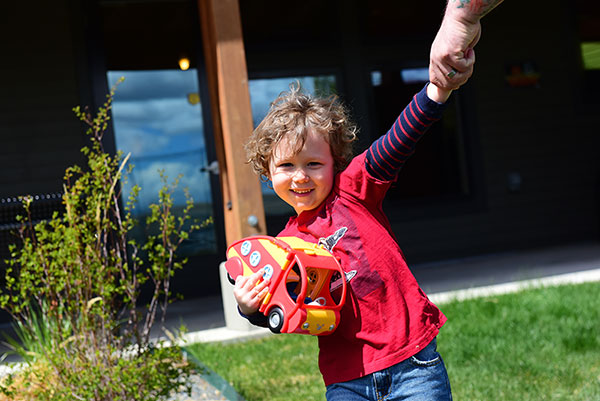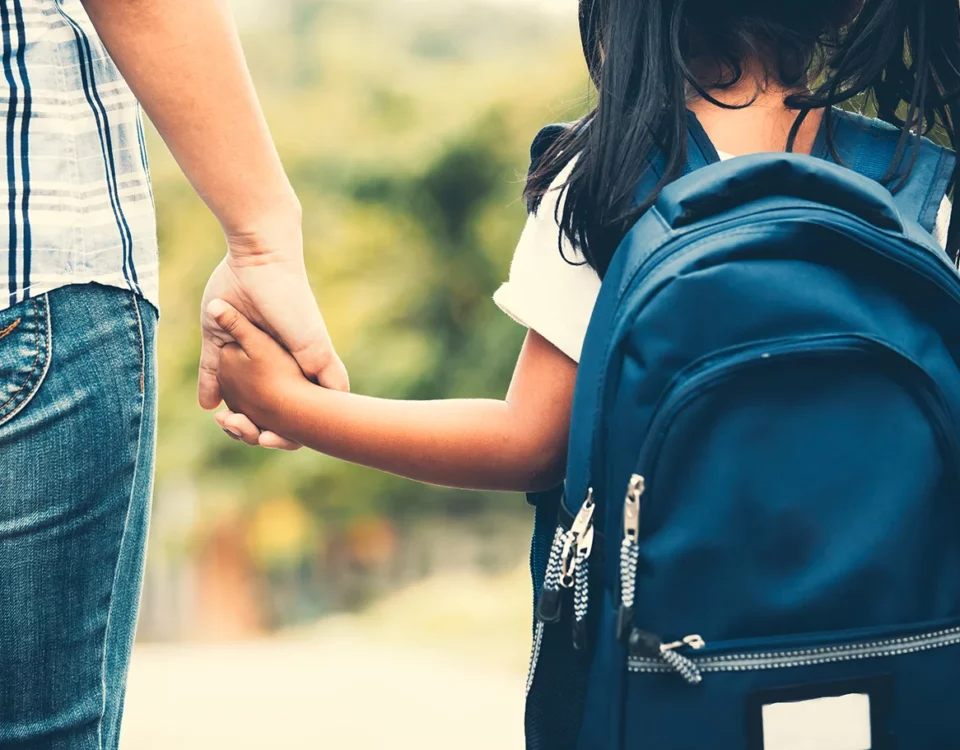
Trauma Informed Care Benefits Everyone
July 17, 2020
Breaking Down Barriers with Intentional Design
August 2, 2023Stressful. Unusual. Unexpected. Historic. Troubled. Pick your synonym for 2020, it all adds up to a year that has pushed most of us out of our comfort zone and into anxiety. And, if you think this only affects adults, think again.
Many of Montana’s children are struggling with fear, anxiety, and stress. The on-going social distancing, an unusual school year, and family concerns have all created a situation where many feel lost and out of control. At Shodair Children’s Hospital, we understand how important good mental health is and we know there are things we can all do to help the children in our lives avoid getting stuck in a cycle of gloom and despair.
Recreational Therapy and Activities at Shodair are designed to help patients, mostly children, gain experience in areas such as communication and social skills, leisure education, coping skills, and general wellness. “These are skills that everyone needs in order to effectively handle the stress of the uncertain times we are living in,” states Shodair’s Director of Allied Therapy Melissa Nichols. “The same activity can help children develop different skills depending on their ages – middle schoolers making bracelets might be learning how to tolerate frustration, while for high schoolers the same activity is teaching them coping skills and how to identify meaning in an activity.”
Of course, not all learning happens in a classroom and during any time of change and uncertainty, children feel an increased need to know they are safe. We’re all dealing with a lot these days and even many adults are struggling with their emotions, but the children in our lives really need to know that adults are making them a priority and will be there for them no matter what.

Looking for more specifics? You can’t go wrong following this advice:
Truly listen
Don’t think you know what children are going to say before they say it or give a canned response no matter what their question. Give them your full attention.
Be honest
Don’t lie. Of course, you can’t predict the future, but you can answer their questions to the best of your ability while reinforcing the fact that you are there for them.
Practice kindness
Children don’t always understand their feelings well enough to explain them in words. Instead they may become needy, irritable, or overly emotional, but they don’t need discipline as much as they need reassurance.
Spend time
Take some time to just be with your child. Most children find this simple act very calming and soothing.
Build flexibility
Talk about what things are within your control and what things are outside of that control. Start with something silly, like “Can we control the rain? What would we do if it did rain when we wanted to go to the park? Could we still have fun?” Then move into talking about more serious topics and how we can plan for them even if we cannot control them.
Share coping skills
Children learn by watching those around them, so show them how you are coping with difficult feelings. What things do you do to stay calm that they can do too? Everything from taking deep breaths to listening to music to rubbing your hands up and down your arms until the skin feels warm. If it works — share it!
In the end, the most important thing for the children in your life to know is that you love them and are there for them. Sure, they probably already know that, but especially now, they really can’t hear that too much. It’s simple, it’s effective, and it’s something you can do today and every day!
Author: Lauren Leslie
Lauren Leslie is a Primary Therapist at Shodair Children’s Hospital, where she works with children ages 3-11. Her professional interests include play therapy, mindfulness work, and trauma focused care.
Looking for more specifics? You can’t go wrong following this advice:
Truly listen
Don’t think you know what children are going to say before they say it or give a canned response no matter what their question. Give them your full attention.
Be honest
Don’t lie. Of course, you can’t predict the future, but you can answer their questions to the best of your ability while reinforcing the fact that you are there for them.
Practice kindness
Children don’t always understand their feelings well enough to explain them in words. Instead they may become needy, irritable, or overly emotional, but they don’t need discipline as much as they need reassurance.
Spend time
Take some time to just be with your child. Most children find this simple act very calming and soothing.
Build flexibility
Talk about what things are within your control and what things are outside of that control. Start with something silly, like “Can we control the rain? What would we do if it did rain when we wanted to go to the park? Could we still have fun?” Then move into talking about more serious topics and how we can plan for them even if we cannot control them.
Share coping skills
Children learn by watching those around them, so show them how you are coping with difficult feelings. What things do you do to stay calm that they can do too? Everything from taking deep breaths to listening to music to rubbing your hands up and down your arms until the skin feels warm. If it works — share it!
In the end, the most important thing for the children in your life to know is that you love them and are there for them. Sure, they probably already know that, but especially now, they really can’t hear that too much. It’s simple, it’s effective, and it’s something you can do today and every day!
Author: Lauren Leslie
Lauren Leslie is a Primary Therapist at Shodair Children’s Hospital, where she works with children ages 3-11. Her professional interests include play therapy, mindfulness work, and trauma focused care.




